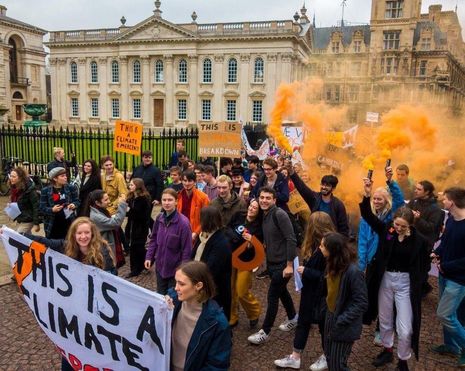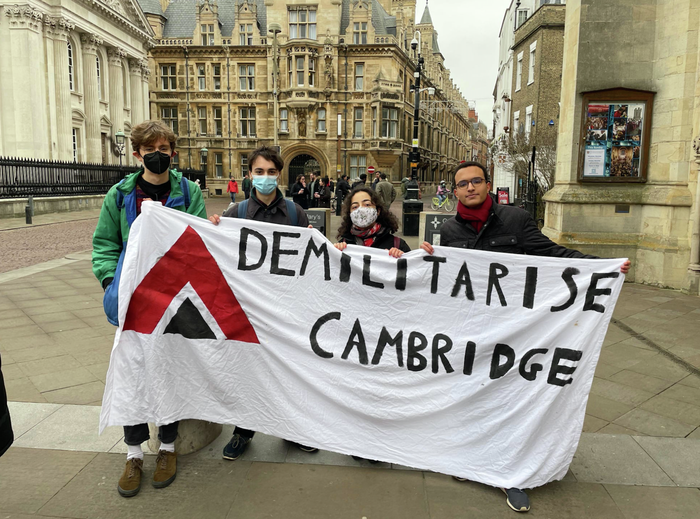SU calls for careers service to cut ties with fossil fuel companies
The motion, put forward by the Cambridge Climate Justice campaign called on the university careers service to stop promoting “dead end road” fossil fuel jobs and adopt an ‘ethical careers policy’

A motion calling for the university’s careers service to stop promoting jobs at fossil fuels and to adopt an “ethical careers policy” was passed at a Students’ Union meeting yesterday.
The motion was proposed by the Cambridge Climate Justice (CCJ) campaign, who are led by students and call for “Cambridge University to cut all ties with environmentally destructive industries”.
In order to bring about this change, the motion was put forward “in support of Fossil Free Careers and the adoption of an Ethical Careers Policy by the influential Cambridge Careers Service.”
A student involved with the campaign, Sam Gee, told Varsity: “Here at CCJ, it’s not for us to green stamp specific ethical careers, but the unique humanitarian crisis represented by the climate emergency means the University Careers Service must act quickly to stop lending the legitimacy of the University’s brand to – and avoid contributing to a systemic enabling of – the unimaginably destructive business model of oil, gas and mining industries.”
The campaign believes the obligation of the University Careers Service is to “provide students with meaningful employment opportunities”. By promoting jobs associated with fossil fuels, the campaign argued they were not fulfilling this duty: “it has become increasingly clear that fossil fuel jobs are dead-end roads in a decarbonizing economy, there is simply no way to view fossil fuel recruitment as compatible with the service’s primary mission, or that of the broader University to contribute to society.”
This move from the campaign follows a motion at Bristol University’s Student Union as part of a “national campaign for Fossil Free Careers led by People and Planet.”
The motion is important, according to the campaign, because students “know and understand the crises facing our planet, and how extractive industries have brought devastation to communities and wildlife around the world”. The industries, they argue, are further “entrenching and exacerbating inequalities, and hitting already vulnerable people and countries first and worst.”
Varsity approached the University of Cambridge for comment.
 News / Judge Business School advisor resigns over Epstein and Andrew links18 February 2026
News / Judge Business School advisor resigns over Epstein and Andrew links18 February 2026 News / Gov grants £36m to Cambridge supercomputer17 February 2026
News / Gov grants £36m to Cambridge supercomputer17 February 2026 News / Hundreds of Cambridge academics demand vote on fate of vet course20 February 2026
News / Hundreds of Cambridge academics demand vote on fate of vet course20 February 2026 News / CUCA members attend Reform rally in London20 February 2026
News / CUCA members attend Reform rally in London20 February 2026 News / Union speakers condemn ‘hateful’ Katie Hopkins speech14 February 2026
News / Union speakers condemn ‘hateful’ Katie Hopkins speech14 February 2026











